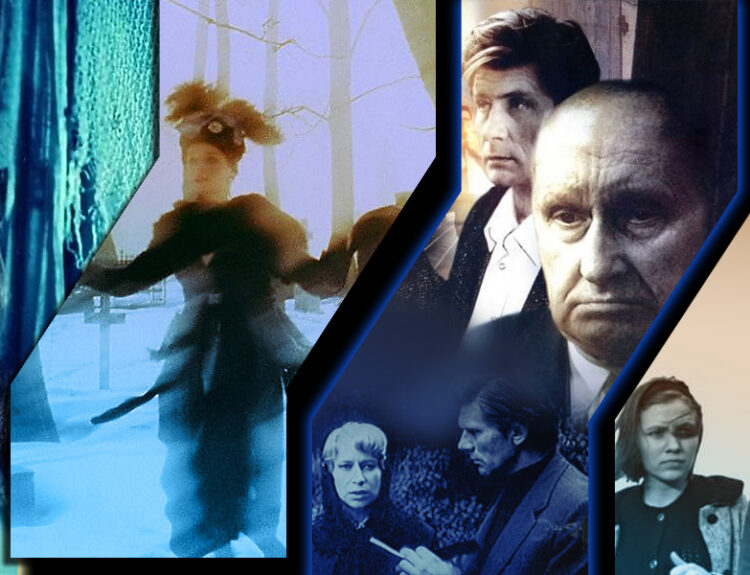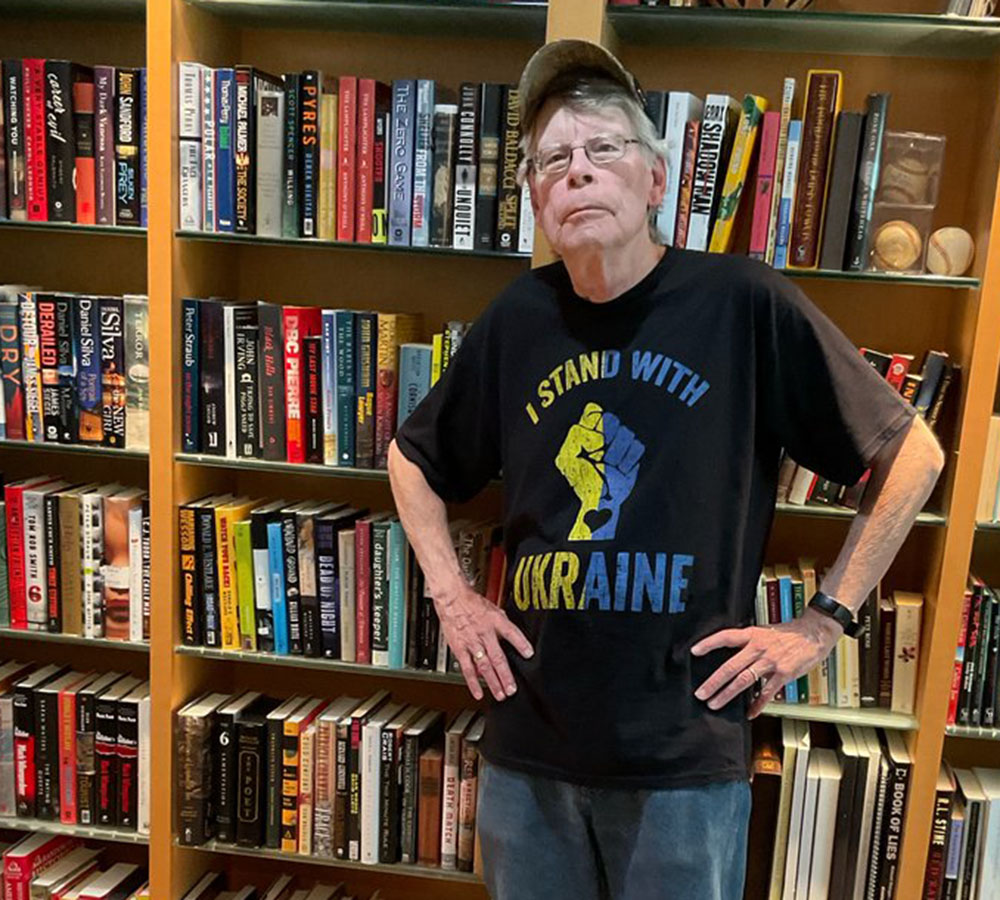The 81st Venice International Film Festival took place from 28 August to 7 September 2024 in Venice, on the island of Lido. It was chaired by French actress Isabelle Huppert, with the opening film being Beetlejuice Beetlejuice, the sequel to Tim Burton’s once-popular hit. However, the 81st festival will be remembered not for this, but for the scandalous out-of-competition documentary Russians at War by Russian-Canadian documentary filmmaker Anastasia Trofimova. And unfortunately, not only for this…
Following the successful Cannes festival landing of ‘good Russians,’ Russian cultural figures continue what their state does best—conducting hybrid warfare on the cultural front. Since many major Russian filmmakers are under sanctions for their pro-Putin stance, open support for the war, and propagandist activities, Russia has taken a different route by deploying its emissaries, who in the eyes of an impartial European audience should in no way be associated with the fascist state that Russia has become.
To start with, the author of the scandalous film, Anastasia Trofimova, is positioned as a ‘Russian-Canadian director,’ which is a blatant manipulation. Yes, the film was produced with the financial support of Canadian sponsors, but Ms Trofimova herself was formerly an employee of the Russian propaganda media holding and channel Russia Today, which is directly linked to Margarita Simonyan, one of the most fervent and bloodthirsty propagandists in the service of the Putin regime.
Anastasia Trofimova considers her film to be anti-war, but in Ukraine, it has been called ‘a vivid example of Russian propaganda’ and ‘an attempt to justify the war.’ Trofimova claims that she worked on its creation without any agreements with the Russian Ministry of Defence, but she refused to comment on the fact that her film clearly serves the interests of Russian war criminals.
It’s also worth remembering that to create Russians at War, Trofimova spent seven months with Russian military forces on the front lines in the occupied parts of the Donetsk and Luhansk regions of Ukraine, which at the very least violated Ukrainian law. This raises a new question: is it appropriate to allow films, even if they are out of competition, to be included in the festival programme when the filming involved gross violations of international law?
Director Trofimova believes that her work should change the stereotypes about Russian soldiers in Western society. ‘For me, the biggest shock was to see how ordinary they are. Completely ordinary guys, with families, with a sense of humour, with their own understanding of what’s happening in this war,’ says Trofimova. The film also portrays the motivation of Russian occupiers who are participating in the genocidal war against Ukrainians—many admit they came to fight for money, others claim they are driven by camaraderie, and some sincerely believe they are defending Russia’s borders from NATO. Crucially, all the destruction and atrocities committed by Russian troops are delicately left off-screen, and the director herself claims that during her time filming in the war zone, she did not witness a single war crime.
The film even includes a scene where the director tries to show that Russian soldiers ‘try to remain human’ even in the extreme conditions of full-scale war. When Trofimova directly asks whether it’s true that the Russian army kills, rapes, and tortures Ukrainians in the occupied territories, a Russian soldier confidently responds that it is not true, because ‘Russians are incapable of such things,’ and regarding the invasion of another country, they were ‘just following orders.’ One of the first characters in the documentary is shown as a ‘Ukrainian’ who fights on Russia’s side because, according to him, Ukraine ‘bombed Donbas for so many years’ that he couldn’t take it anymore and switched sides.
As Ukrainian director and screenwriter Iryna Tsilyk noted:
‘In general, it’s all the best at once. For the author, the war and invasion started in 2022, not a word about Crimea, but there’s mention of a “civil war” in Ukraine. The author also says that Russia hasn’t been involved in wars for a long time and that, as a child, war was something distant and abstract to her. Apparently, Russia’s wars in Chechnya, Georgia, Transnistria, and so on didn’t exist for her either. And so on.’
In the interviews Anastasia Trofimova gave, the entire set of well-known Kremlin narratives was also voiced: from the idea that no one should be dehumanised, not even soldiers of the occupying army, to the statement that “choosing any side of the conflict is wrong, because by choosing a side, you choose war, and instead, you should choose peace.”
Ukrainian journalist Olga Tokariuk also shared her opinion on Trofimova’s film on the social network X:
“A prime example of Russian propaganda at the Venice film festival. The documentary by a director who previously made films for RT is aimed at concealing Russian war crimes in Ukraine and portraying Russian soldiers as ‘poor victims’ of the regime.”
Ukrainian film producer Daria Bassel also criticised the film, pointing out that Trofimova ignores Russia’s previous wars: “You will feel sorry for the people who die in the film, and for those we see mourning their loved ones. And you should—if you’re a normal person, you should feel pity, sadness, and emotion. But it’s important to remember that these people joined an army that invaded an independent country, many of them voluntarily, as we learn from the film. We should also remember Bucha, Irpin, Mariupol, and the civilians killed there. Recall the thousands of children who were illegally taken from Ukraine to Russia. As I write this and as you read, missiles are striking Ukrainian cities. The buttons are being pressed by ordinary Russians. Are their crimes any less significant just because they claim not to know why they are taking part in this war?” writes Bassel.
However, Trofimova’s propagandistic film was not the only scandalous event at the film festival. Another film was screened in Venice, I Will Revenge This World with Love by Russian-Armenian director Zara Jiyan, dedicated to the 100th anniversary of the birth of Ukrainian director of Armenian descent, Sergei Parajanov. This drawn-out, pretentious, and noticeably anti-Ukrainian film is a classic example of cultural appropriation—yet another favourite method of Russians to claim the achievements of other peoples. The film doesn’t mention Parajanov’s Ukrainian identity or biography, apart from emphasising the fact that he ‘blessed Ukraine with his presence,’ and how ungrateful Ukraine imprisoned the director for it. The fact that the persecution of Parajanov was conducted by the communist regime, forcibly imposed on Ukraine by the Russians, is not mentioned in the film. Instead, another well-known director appears—Emir Kusturica, who is famous for his pro-Russian stance and approval of the war in Ukraine.
“Culture is beyond politics”—this is a thesis that Russians love to spread, trying to strengthen their influence in the West through such ‘cultural saboteurs’ as Anastasia Trofimova and Zara Jiyan. The fact that European society is falling for Russian narratives suggests that Russia’s cultural expansion is bearing fruit. As for the Venice Festival, the presence of Russian propaganda films in its programme indicates a clear bias on the part of the organisers and the jury—and what exactly motivates these ‘Venetian merchants’ of cinema, financial or ideological reasons, is anyone’s guess.
However, here’s one more interesting fact: the new director of the Venice Biennale foundation, Pietrangelo Buttafuoco, is a staunch Italian neo-fascist, and European cultural figures have repeatedly expressed the view that the festival has become noticeably ‘centre-right’ since the new manager took over. Well, an Italian neo-fascist will always find common ground with a Russian neo-fascist, so films like Russians at War will continue to appear in future festival programmes, and the only thing the press and opinion leaders must do is respond as harshly and critically as possible to such incidents in the future.
Source: The Gaze







